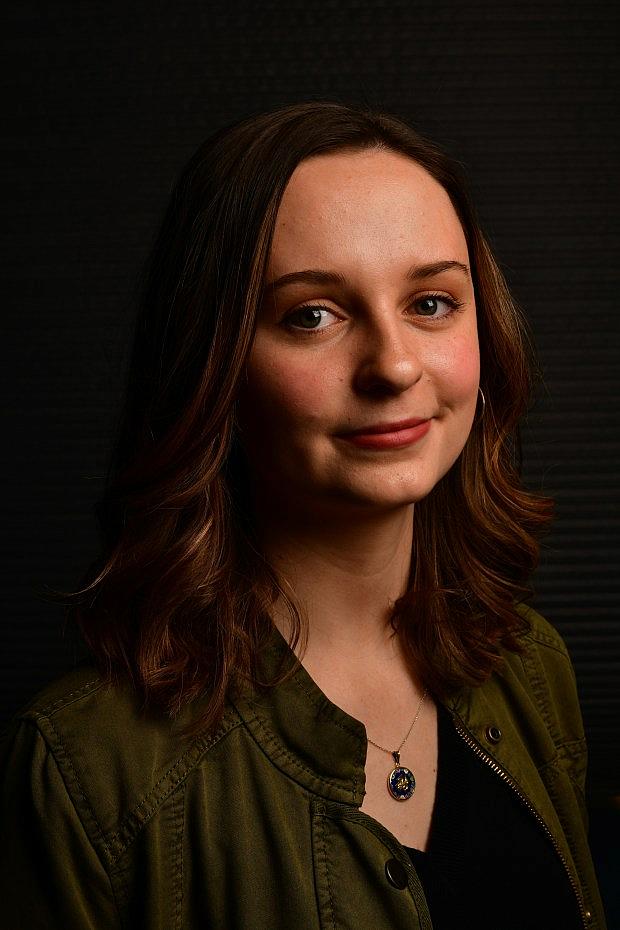Soup, sticky notes and other lies about suicide
This story was produced as part of a larger project led by Jessica Seaman, a participant in the 2019 National Fellowship.
Other stories in this series include:
The Denver Post launches project to investigate teen suicides in Colorado — and we need your help

Hyoung Chang, The Denver Post
By Alexandra Hall
Editor’s note: This essay was awarded an honorable mention in The Denver Post’s teen essay contest as part of an ongoing Crisis Point project on youth suicide in Colorado.
If there was one statement that I dislike hearing more than, “No, you can’t use the bathroom during my class,” it would be, “It gets better.”
Adults tell kids this adage not out of malicious disregard. They genuinely think it helps. It has been the mental health mantra for the past decade, and it seems to have done nothing to ease the situation. When does it get better? More importantly, how does it get better?
Since the ripe age of 14, I’ve hopped through antidepressants like a frog on leap pads. Never once, as I was throwing up on Zoloft or feeling suicidal on Lexapro, did I think to myself, “It gets better!”
When young people fall into the claws of mental illness, it seems few words matter. We hear it all. Chances are, we swallow your words like the same pesky pills prescribed. Don’t get me wrong, it’s not that adults don’t care. It just doesn’t address the problem.
Like many struggling teens, I’ve been preached the end goal philosophy since the day I turned 13. It was always “next year,” and yet every year, I still felt stagnant in my mental suffering. The spoonfed philosophies and mantras tasted dull and un-nourishing. Adults have tasted the variety of life and all the ingredients it has to offer, but young people have barely tasted more than Ramen noodles. Young people lack the perspective of life that makes situations easier to cope.
Colorado alone has seen a 58% increase in teen suicide since 2016, making it the cause of one in five adolescent deaths. Clearly, the “it gets better” dialogue isn’t working.
The “high school experience” is not what it used to be. Parents worried about drugs, sex, and rock n’ roll corrupting young minds. Now, parents worry about the next school shooting in the hallways. Kids have spent more time hiding under desks than they have studying for the SAT.
Beyond the halls, the coming of age journey is no longer as simple as getting a driver’s license at 16 and buying a pack of cigarettes on your 18th birthday. The rights of passage that have been fictionalized and lusted over for decades are now a thing of the past. Kids are addicted to substances at younger ages, exposed to the internet before their frontal lobe can say “cooties,” and social media is the breeding ground for insecurity and isolation.
We are reduced to a Facetuned profile, a glorified follower count and a culmination of post likes from strangers. We simultaneously develop our perception of self while being bombarded with the highlights of our peers’ seemingly glamorous lives. Companies advertise directly to our online footprints and the societal “norms” change with every refreshing of an Instagram feed. Shaping an identity has never been so angsty, so difficult and so complicated. More so than ever before, young people are absolutely lost amidst a sea of uncertainty. We are no longer learning how to steadily swim in the world. We are drowning at an alarming rate.
Sticky notes of positivity on school walls and lockers are the scariest cries for help that adults have ever seen. They are a reactive measure rather than a proactive attempt to help. If we are relying on 3-inch, neon flyers with stale promises of hope to keep kids alive, written by peers who never make eye contact in the hallways, we are in more of a crisis than we think.
Teachers spend countless hours in meetings learning how to promote mental health in their classes, and parents try their best to monitor their children’s social media accounts and internet activity. But until the schism of communication is mended, there will be no change.
Instead of ridiculing “Gen Z” or “snowflake” culture, and, in turn, separating from it, adults need to immerse themselves in the external complex world that their kids are growing up in. By better understanding it, they can openly communicate and actively play a role in the culture.
There is no one, simple recipe that will satiate the crisis. It cannot be cured by sticky notes or end goal philosophies. There’s no “Chicken Noodle Soup for the Suicidal Soul.” Our tongues are burnt. We know the taste. Rather, there are so many other flavors that might actually satisfy the soul instead of subduing its growl until the hunger bites back. The time to reconnect is now… before it is too late.
Alexandra Hall is a senior from Colorado Springs’ Cheyenne Mountain High School.
Health reporter Jessica Seaman is investigating how Colorado’s mental health systems address youth suicide. To read more essay contest entries and learn more about our investigation, visit youthsuicide.denverpost.com.
[This article was originally published by the Denver Post.]

